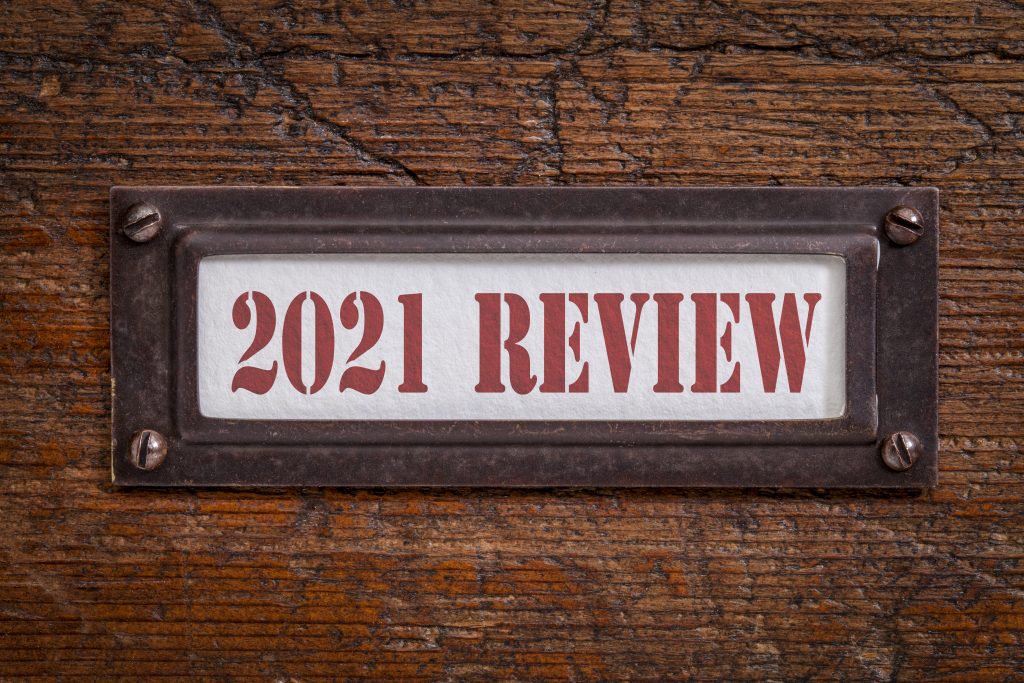“One of the potentially most significant developments related to FRAND licensing in 2021 was the change from the Trump administration to the Biden administration. Where the Biden administration stands on such issues remains to be seen…. So far, all we can do is read some tea leaves.”
This is Part II of a two-part article discussing FRAND (fair, reasonable, and non-discriminatory) licensing developments taking place in the United States in 2021. Read Part I here.
6) HTC v. Ericsson
 After a slow summer on the FRAND licensing front, the Court of Appeals for the Fifth Circuit’s ruling in the matter of HTC v. Ericsson came in the dog days of August. As we wrote about here, the August 31 ruling dealt with, amongst other things, an appeal challenging the district court’s instructions to the jury regarding whether or not the license terms offered by Ericsson were FRAND and, more specifically, with respect to the issue of apportionment. Beyond finding that the failure to give instructions on an undisputed issue did not impair HTC’s ability to present its claims, the majority found that HTC’s proposed instructions “were not ‘substantially correct’ statements of law”. First, they noted that the licensing commitment to ETSI was governed by French law, whereas HTC’s instructions were based on U.S. patent law. Second, the majority held that even if U.S. law were applicable, the instructions would not have been required as they related to matters of patent law, whereas the claim at issue was for breach of contract. In a separate ruling Judge Stephen Higginson agreed that HTC had not been impaired in its ability to present its claims but disagreed that the District Court had not erred by not incorporating an instruction on apportionment. According to Judge Higginson, “[w]hile a breach-of-FRAND case ‘is not a patent law action,’ the ‘Federal Circuit’s patent law methodology can serve as guidance in contract cases on questions of patent valuation’”. Interestingly, despite not involving antitrust claims the Department of Justice Antitrust Division and the U.S. Patent and Trademark Office filed a joint amicus brief, during the Trump administration, arguing that HTC’s proposed rules regarding use of the SSPPU and non-discrimination “would undermine the SEP licensing market and the incentives to innovate that Congress has created with our patent system.”
After a slow summer on the FRAND licensing front, the Court of Appeals for the Fifth Circuit’s ruling in the matter of HTC v. Ericsson came in the dog days of August. As we wrote about here, the August 31 ruling dealt with, amongst other things, an appeal challenging the district court’s instructions to the jury regarding whether or not the license terms offered by Ericsson were FRAND and, more specifically, with respect to the issue of apportionment. Beyond finding that the failure to give instructions on an undisputed issue did not impair HTC’s ability to present its claims, the majority found that HTC’s proposed instructions “were not ‘substantially correct’ statements of law”. First, they noted that the licensing commitment to ETSI was governed by French law, whereas HTC’s instructions were based on U.S. patent law. Second, the majority held that even if U.S. law were applicable, the instructions would not have been required as they related to matters of patent law, whereas the claim at issue was for breach of contract. In a separate ruling Judge Stephen Higginson agreed that HTC had not been impaired in its ability to present its claims but disagreed that the District Court had not erred by not incorporating an instruction on apportionment. According to Judge Higginson, “[w]hile a breach-of-FRAND case ‘is not a patent law action,’ the ‘Federal Circuit’s patent law methodology can serve as guidance in contract cases on questions of patent valuation’”. Interestingly, despite not involving antitrust claims the Department of Justice Antitrust Division and the U.S. Patent and Trademark Office filed a joint amicus brief, during the Trump administration, arguing that HTC’s proposed rules regarding use of the SSPPU and non-discrimination “would undermine the SEP licensing market and the incentives to innovate that Congress has created with our patent system.”
7) Intel v. Fortress Investment Group
After having two prior complaints dismissed without prejudice, and one of the two main antitrust theories advanced dismissed with prejudice, September saw Intel’s third attempted complaint against Fortress et al. dismissed by the U.S. District Court for the Northern District of California with prejudice, and judgment entered for the Defendants. The suit was initially launched in 2019 by Apple and Intel, who alleged Fortress’ aggregation and patent transfer activities were anti-competitive, but by June of this year Apple had dropped out. This was yet another antitrust case featuring a Statement of Interest filed by the Department of Justice during the Trump administration. According to the Statement “[f]undamentally, these claims are contractual pricing disputes that are properly vindicated through contract law remedies and do not state an antitrust claim.” While Judge Edward M. Chen’s opinion regarding the aggregation theory presented in the third complaint was filed under seal, he had ruled earlier in the year, in conjunction with the second complaint, that the markets claimed by Plaintiffs were not plausibly stated and, even if they were, the allegations of market power in each market were inadequate. With respect to the patent transfer theory, which the Plaintiffs alleged allowed subsequent owners of standards related patents “to escape the protections for licensees to which licensors agree through making a FRAND commitment”, the related claims were dismissed with prejudice following the second complaint. According to Judge Edward M. Chen, the Court of Appeals for the Ninth Circuit’s decision in FTC v. Qualcomm rendered the claims without merit.
8) Ericsson v. Apple and Apple v. Ericsson
Shortly into the fourth quarter of 2021, Ericsson sued Apple in the U.S. District Court for the Eastern District of Texas (Marshall Division) seeking declaratory judgment that Ericsson has complied with its FRAND commitment and the ETSI IPR Policy. Amongst other things, Ericsson alleges that “Apple has asserted that licensing practices violate FRAND if they are not in accord with Apple’s self-proclaimed and highly publicized FRAND licensing principles (many of which have been expressly rejected by courts and by the industry)”, and has “publicly committed to not accepting licensing offers that deviate from Apple’s self-proclaimed principles”, to argue that there is a sufficient case or controversy to warrant the issuance of a declaratory judgment. Further, Ericsson alleges that “Apple has historically resisted licensing overtures by Ericsson, and other essential patent holders, as part of a global strategy to devalue standard essential patents and reduce Apple’s royalty payments.” The specific core FRAND licensing principles of Apple that Ericsson highlights in its complaint include “requiring that patent owners prove (to Apple’s satisfaction) every patent to be licensed worldwide is actually essential, infringed, valid and enforceable before Apple will take a license; requiring royalties be calculated on the now-rejected SSPPU theory; asserting that basing royalties on the value of patent inventions to the end user is per se discriminatory; and that licensing the fully conforming, end-user device is also discriminatory.” More recently, Apple struck back with a suit of its own in Texas which, amongst other things, claims a breach of Ericsson’s FRAND contractual commitments and seeks a declaration of FRAND royalties for Ericsson’s Global Cellular SEP Portfolio. According to the complaint “Ericsson is using litigation and strong-arm tactics to demand payments from Apple that are neither fair nor reasonable and are discriminatory.” Apple also filed a motion to dismiss Ericsson’s complaint.
9) Continental v. Nokia, Avanci and others (and Continental v. Nokia)
October also saw oral arguments before the Court of Appeals for the Fifth Circuit regarding Judge Barbara Lynn of the U.S. District Court for the Norther District of Texas’ dismissal, with prejudice, of Continental’s antitrust suit against Avanci, Nokia and others involved in the Avanci cellular licensing pool. According to the dismissal order, Continental asserted that the Avanci pool “is actually an agreement between Defendants to require non-FRAND terms for SEP licenses, offered only to OEMs, who are better positioned and thus more likely to accept those excessive, unreasonable terms than would component suppliers”, like Continental. Judge Barbara Lynn’s Order concluded, however, that Continental failed to plead an antitrust injury or establish that it is the best entity to assert the antitrust claims and, even if it had, Continental did not allege an unlawful restraint of trade (Sherman Act Section 1) or unlawful monopolization or a conspiracy to monopolize (Sherman Act Section 2). This was yet another case featuring a Statement of Interest filed by the Department of Justice during the Trump administration. According to that Statement of interest “Continental’s attempts to base Section 2 antitrust violations upon alleged breaches of ‘fair, reasonable, and nondiscriminatory’ (‘FRAND’) commitments made during standard-setting processes, including claims of purported ‘deception’ regarding FRAND rates, do not articulate cognizable antitrust claims.” The Statement of Interest further notes, however, that “[a] concerted effort to abuse the standard-setting process and exclude certain technologies for anticompetitive ends, however, can subvert the competitive process and thereby violate Section 1 of the Sherman Act.” Related to this dispute, Continental also sued Nokia in Delaware Chancery Court early in 2021 asking the court to find, amongst other things, that Nokia is liable for breach of contract, set the appropriate FRAND terms and conditions, and order Nokia to offer a license on the terms and conditions set by the Court.
10) The Biden Administration
One of the potentially most significant developments related to FRAND licensing in 2021 was the change from the Trump administration to the Biden administration. For as one can see from the other summaries set forth in these articles, the Department of Justice Antitrust Division was very active during the Trump administration, weighing in on several cases involving FRAND licensing and/or antitrust issues. Where the Biden administration stands on such issues remains to be seen. So far, all we can do is read some tea leaves.
One development signaling a possible departure from former Assistant Attorney General for the Antitrust Division of the Department of Justice Makan Delrahim’s “New Madison Approach” was President Biden issuing an Executive Order on Promoting Competition in the American Economy. According to the Executive Order, one of the many things to be considered is as follows:
To avoid the potential for anticompetitive extension of market power beyond the scope of granted patents, and to protect standard-setting processes from abuse, the Attorney General and the Secretary of Commerce are encouraged to consider whether to revise their position on the intersection of the intellectual property and antitrust laws, including by considering whether to revise the Policy Statement on Remedies for Standards-Essential Patents Subject to Voluntary F/RAND Commitments issued jointly by the Department of Justice, the United States Patent and Trademark Office, and the National Institute of Standards and Technology on December 19, 2019.
The December 19, 2019 Policy Statement followed the Department of Justice Antitrust Division withdrawing its assent to a 2013 Joint Policy Statement of the Department of Justice and U.S. Patent and Trademark Office entered into during the Obama administration. In contrast to the 2013 Policy Statement, the 2019 Policy Statement rejected “a special set of legal rules that limit remedies for infringement of standards-essential patents subject to a F/RAND commitment…”, and instead took the position that “[a]ll remedies available under national law, including injunctive relief and adequate damages, should be available for infringement of standards-essential patents subject to a F/RAND commitment, if the facts of a given case warrant them.” Most recently, on December 6, 2021, the U.S. Patent & Trademark Office, the National Institute of Standards and Technology and the U.S. Department of Justice, Antitrust Division published an updated Draft Policy Statement on Licensing Negotiations and Remedies for Standards-Essential Patents Subject to Voluntary F/RAND Commitments inviting comments by January 5, 2022.
More recently, in a September 29, 2021 speech titled “Leveling the Playing Field in the Standards Ecosystem: Principles of a Balanced Antitrust Enforcement Approach to Standards-Essential Patents”, the Department of Justice’s Antitrust Economics Director of Enforcement, Mr. Jeffrey Wilder, calls into question the previous administrations’ position that “a patent owner’s breach of a FRAND commitment can never constitute an antitrust violation” saying that “[a]ntitrust law ensures that the standard-setting process cannot be undermined by deceptive FRAND promises or other strategies that harm competition.” He added, however, that “[a]ntitrust is not the right tool for licensees who are simply dissatisfied with the rate being offered to them by an SEP holder.”
Mr. Wilder’s speech also touched on the Department of Justice Antitrust Division’s recent refiling of a 2020 letter filed by Makan Delrahim regarding a 2015 Business Review Letter from the Antitrust Division to the Institute of Electrical and Electronics Engineers’ (IEEE) proposed revisions to its Patent Policy. According to the 2020 letter, “[w]e take the extraordinary step to supplement the 2015 Letter primarily because we have learned that our 2015 Letter has been cited, frequently and incorrectly, as an endorsement of the IEEE Policy, which was not our purpose or intent.” In April, the letter was removed from the IEEE’s 2015 review file in what Mr. Wilder referred to as a “procedural correction”. He goes on to note, however, the following:
A positive business review is a statement that the Division has no present intention to challenge the proposed conduct based on the facts the parties provided. It is not an actual endorsement of the conduct.
Notwithstanding the refiling of the 2020 letter, the IEEE nonetheless revisited its Patent Policy in 2021, specifically, with respect to the factors for determining a reasonable rate and prohibitive orders (e.g. injunctions).
The current Assistant Attorney General of the Department of Justice’s Antitrust Division Jonathan Kanter, however, was only recently confirmed on November 16, 2021. Time will tell if his views align with those of Mr. Wilder and what will happen in view of President Biden’s Executive Order.
On a related note, the Federal Trade Commission (FTC) announced on September 14, 2021 that it “voted to approve and make public a series of resolutions that will enable agency staff to efficiently and expeditiously investigate conduct in core FTC priority areas over the next ten years”. This series of resolutions included “Abuses of Intellectual Property” and “Monopolization Offenses” which, as we saw from the FTC’s case against Qualcomm can involve FRAND licensing related practices. How recently appointed FTC chairwoman Lina Khan views such matters, however, also remains to be seen.
Last, but not least, Kathi Vidal has been nominated to be the next USPTO Director. Whether or not she departs from the policies of former Director Andrei Iancu, in particular with respect to the 2019 Policy Statement, is also something to watch for in 2022.
As we’ve outlined in this series, 2021 was an active year for U.S. FRAND licensing developments, and 2022 promises more of the same. Please note in the comments if we missed anything significant.

![[IPWatchdog Logo]](https://ipwatchdog.com/wp-content/themes/IPWatchdog%20-%202023/assets/images/temp/logo-small@2x.png)


![[Advertisement]](https://ipwatchdog.com/wp-content/uploads/2024/04/Artificial-Intelligence-2024-REPLAY-sidebar-700x500-corrected.jpg)
![[Advertisement]](https://ipwatchdog.com/wp-content/uploads/2024/04/UnitedLex-May-2-2024-sidebar-700x500-1.jpg)
![[Advertisement]](https://ipwatchdog.com/wp-content/uploads/2024/04/Patent-Litigation-Masters-2024-sidebar-700x500-1.jpg)

![[Advertisement]](https://ipwatchdog.com/wp-content/uploads/2021/12/WEBINAR-336-x-280-px.png)
![[Advertisement]](https://ipwatchdog.com/wp-content/uploads/2021/12/2021-Patent-Practice-on-Demand-recorded-Feb-2021-336-x-280.jpg)
![[Advertisement]](https://ipwatchdog.com/wp-content/uploads/2021/12/Ad-4-The-Invent-Patent-System™.png)






Join the Discussion
No comments yet.